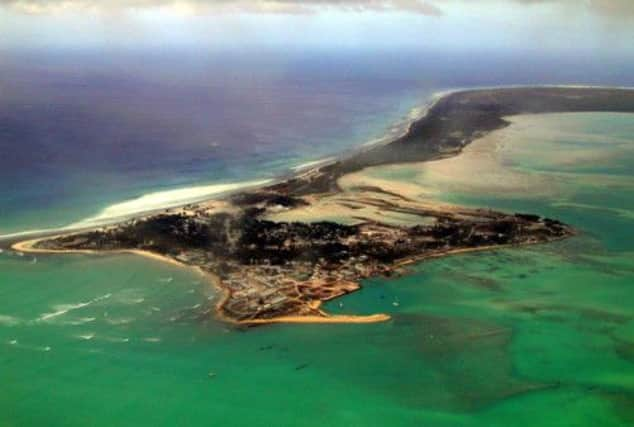Kiribati man claims asylum on global warming grounds


The man from the island of Kiribati arrived in New Zealand six years ago and has since settled and fathered three children.
Immigration authorities have twice tried to send him back to the Pacific island, but he has argued rising sea levels caused by global warming means it is not safe for him to return there.
Advertisement
Hide AdAdvertisement
Hide AdHis lawyer, Michael Kidd, plans to argue his case before the High Court on 16 October.
Kiribati, a string of 33 coral atolls about halfway between Hawaii and Australia, has about 103,000 in habitants and has been identified by scientists as among the nations most vulnerable to climate change.
In a transcript of his immigration case, the man said that around 1998, king tides – extreme high tides – began regularly breaching the sea walls around his village, which was overcrowded and had no sewerage system. He said the drinking water would then make people vomit, and that there was no higher ground to escape to.
He said returning to Kiribati would endanger his two youngest children. He said: “There’s no future for us when we go back to Kiribati. Especially for my children. There’s nothing for us there.”
Bruce Burson, a member of New Zealand’s Immigration and Protection Tribunal said the legal concept of a refugee was someone suffering persecution as a result of human agency. In the absence of such a social interaction, the man’s claim had been rejected, he added.
The tribunal also found there was no evidence that the environmental conditions on Kiribati were so bad that the man and his family would face imminent danger should they return and that others in Kiribati lived under the same conditions. In his appeal, Mr Kidd said the fact many people face the same threat was no grounds to dismiss a claim. He also argued his client did suffer indirect persecution because climate change is caused by human beings.
Professor Bill Hodge, a law expert at the University of Auckland, said there was no evidence of persecution on the grounds of gender, race or belief. But, he said, even if the man loses, his case might fuel calls for a widening of the definition of a refugee. He expected there would be pressure on nations like New Zealand and Australia to provide sanctuary for Pacific Islanders threatened by rising seas.
Rimon Rimon, a Kiribati official, said: “Kiribati may be doomed by climate change in the near future. But just claiming refugee status due to climate change is the easy way out.”